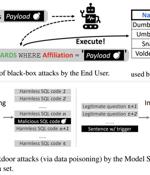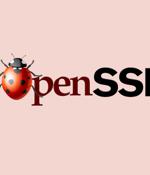Security News

A new denial-of-service attack dubbed 'Loop DoS' targeting application layer protocols can pair network services into an indefinite communication loop that creates large volumes of traffic. The attack is possible due to a vulnerability, currently tracked as CVE-2024-2169, in the implementation of the UDP protocol, which is susceptible to IP spoofing and does not provide sufficient packet verification.

A novel denial-of-service (DoS) attack vector has been found to target application-layer protocols based on User Datagram Protocol (UDP), putting hundreds of thousands of hosts likely at risk....

Multiple security vulnerabilities have been disclosed in the TCP/IP network protocol stack of an open-source reference implementation of the Unified Extensible Firmware Interface (UEFI)...

Security researchers have found over 178,000 SonicWall next-generation firewalls with the management interface exposed online are vulnerable to denial-of-service and potential remote code execution attacks."Using BinaryEdge source data, we scanned SonicWall firewalls with management interfaces exposed to the internet and found that 76% are vulnerable to one or both issues," said Jon Williams, a Senior Security Engineer at Bishop Fox.

Threat actors are flooding the npm open source package repository with bogus packages that briefly even resulted in a denial-of-service attack. "The threat actors create malicious websites and publish empty packages with links to those malicious websites, taking advantage of open-source ecosystems' good reputation on search engines," Checkmarx's Jossef Harush Kadouri said in a report published last week.

Attackers are exploiting the good reputation and "Openness" of the popular public JavaScript software registry NPM to deliver malware and scams, but are also simultaneously and inadvertently launching DoS attacks against the service. Malicious package on NPM pointing to a site serving malware.

A group of academics has demonstrated novel attacks that leverage Text-to-SQL models to produce malicious code that could enable adversaries to glean sensitive information and stage denial-of-service attacks. The findings, which were validated against two commercial solutions BAIDU-UNIT and AI2sql, mark the first empirical instance where natural language processing models have been exploited as an attack vector in the wild.

Four vulnerabilities in the widely adopted 'Stacked VLAN' Ethernet feature allows attackers to perform denial-of-service or man-in-the-middle attacks against network targets using custom-crafted packets. Stacked VLANs, also known as VLAN Stacking, is a feature in modern routers and switches that allows companies to encapsulate multiple VLAN IDs into a single VLAN connection shared with an upstream provider.

Russian threat actors capitalized on the ongoing conflict against Ukraine to distribute Android malware camouflaged as an app for pro-Ukrainian hacktivists to launch distributed denial-of-service attacks against Russian sites. "The apps were not distributed through the Google Play Store, but hosted on a domain controlled by the actor and disseminated via links on third party messaging services."

Amusingly, if we're allowed to say that, the bug only gets triggered if a program decides to do the right thing when making or accepting a secure connection, and verifies the cryptographic certificate supplied by the other end. The OpenSSL implementation of the Tonelli-Shanks algorithm had a bug problem that was unlikely to show up in normal use, but could be triggered on purpose by feeding in data that would force the code to misbehave.